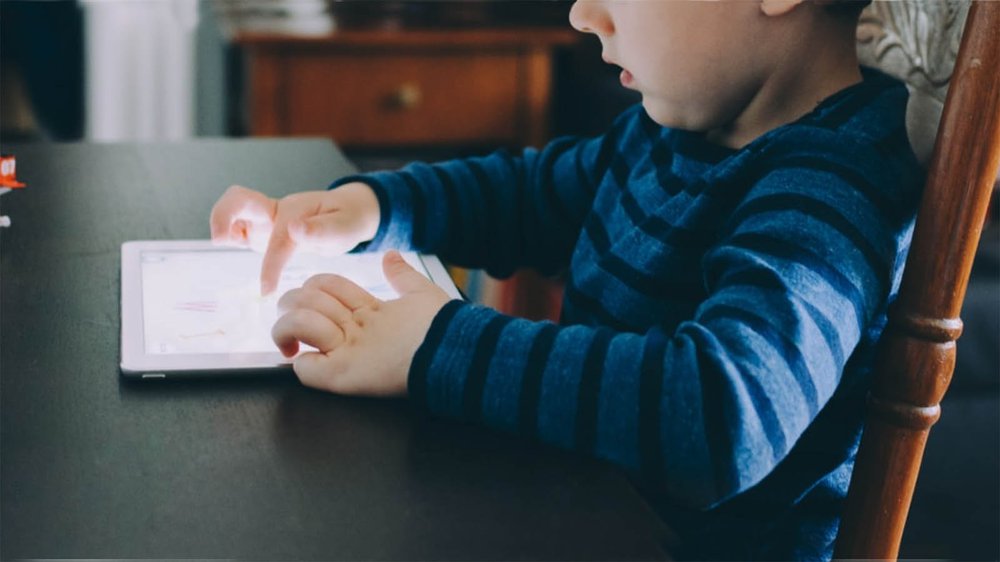When the COVID-19 pandemic forced schools and early education centers across the nation to close, children lost many of the benefits of a high-quality learning environment, as well as important social-emotional interactions with peers and teachers. The isolation of quarantine exacerbated the issue, keeping children away from normal daily connections.
Despite those real losses, there may be a lasting silver lining: we’ve strengthened school-to-home connections and helped families feel more empowered to participate in their children’s learning. Here’s how all 30 locations of Lehigh Valley Children’s Centers (LVCC) worked to build relationships throughout our community, even as we were forced to work together from a distance.
Maintaining Routines
Amid the turmoil our students and families were facing, we believed it was important to provide any kind of normalcy we could. Routines, after all, are an important source of stability and comfort for children.
One way we did that was to carry our students’ familiar routines over to our social media channels. Morning class meetings and story time were easy enough to move online to give students some sense of continuity, while also bringing their families into a supportive community for their new roles as homeschooling teachers.
Recognizing the Expertise of Parents and Teachers
At LVCC, we’ve always believed that family engagement was our most important asset, and the pandemic brought that truth home powerfully. Teachers may be the experts in instruction, but families are the experts in their children.
Well before the pandemic arrived, our pre-kindergarten classes were already using the Waterford Reading Academy, a web-based blended learning tool for reading, math, and science instruction. When COVID-19 closed our centers, the program, delivered online to children at home, provided a stable, high-quality curriculum for more than 550 students and their families. At the same time, our teachers and caregivers worked together to strengthen a school-to-home connection that quickly became the centerpiece of these students’ academic lives.
Preparing for Post-Quarantine Challenges
As we move forward into a post-quarantine world, we are anticipating behaviors or developmental challenges related to isolation or other trauma students have experienced. Some, for example, will be dealing with the painful memory of having a loved one succumb to the disease.
At LVCC we have been preparing for that through virtual professional development opportunities and the understanding that vibrant, trusting communities, like those our teachers have developed with students’ families throughout the last few months, will be key sources of strength and comfort moving forward.
At the beginning of the pandemic we were challenged to quickly develop new routines, procedures, and policies to keep everyone safe and abreast of changes. Now we’re continuing to work to ensure that, as our communities reopen, LVCC remains the safe, nurturing, high-quality learning environment our families trust.
To allow proper implementation of new health and safety requirements, reopening is taking place in phases. Enrolled families who are currently working or soon to begin working have been the first to return, followed by families whose children need a structured program or social-emotional support. Next, LVCC will attempt to assist the many families whose child care providers closed permanently during the pandemic.
Returning families can expect significant changes. Under guidance from the Centers for Disease Control and Prevention, group sizes will be smaller, daily drop-off and pick-up will take place in a designated area, teachers will wear cloth masks, and outside visitors are excluded, for the time being. Children and staff are getting used to daily temperature checks, frequent handwashing, and rigorous sanitizing procedures. And no runny noses: children with signs of illness will be sent home.
Not everyone is going to be eager to return. It’s going to take time for some parents to feel safe bringing their children anywhere in public, and that’s okay. All families will continue to have at-home access to reading, math, and science curriculum with the web-based Waterford Reading Academy program, as well as family engagement opportunities through social media.
Support Over the Summer
To further enhance kindergarten readiness, we are offering two summer program opportunities for children who do not have access to preschool for the summer. These opportunities will also be offered virtually, through an eight-week session via Waterford Early Learning.
We are of course looking forward to the transition back into our buildings, and the structure and routine we provide children within them, but we are also taking additional precautions. We plan to offer a multitude of virtual activities, such as field trips, that would otherwise have taken place in person. To add diversity and interest to our summer programs, we are expanding opportunities for outdoor learning and bringing professionals into our classrooms virtually.
With all these changes and smaller class sizes, the learning may look a little different, but it will continue. We are committed to providing the very best learning experience and have devised effective strategies for learning at home and school. Most importantly, we know we’ve built partnerships with students’ families that will help their children grow and thrive, despite what has been a scary and challenging time for many of them.
About the author
Charles Dinofrio is the president and CEO of Lehigh Valley Children’s Centers, a not-for-profit early education and child care organization in Allentown, PA. He can be reached at cdinofrio@LVCConline.org.











